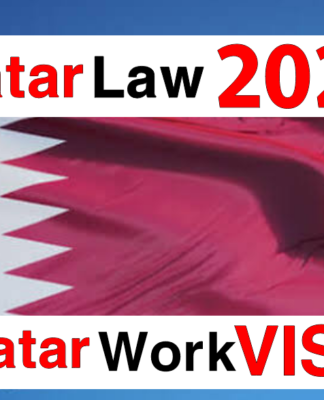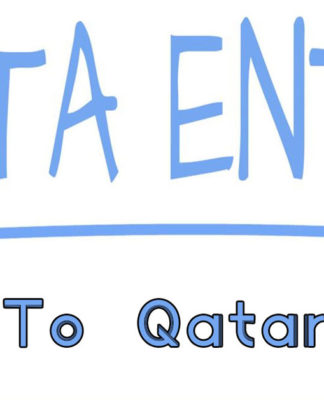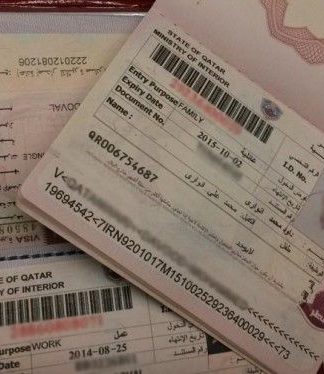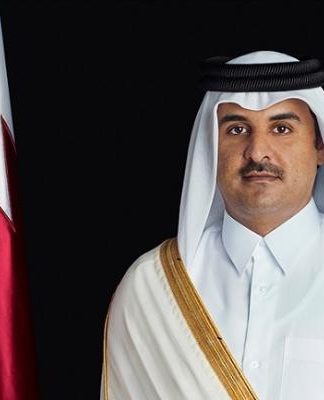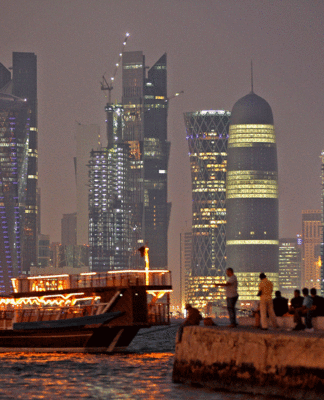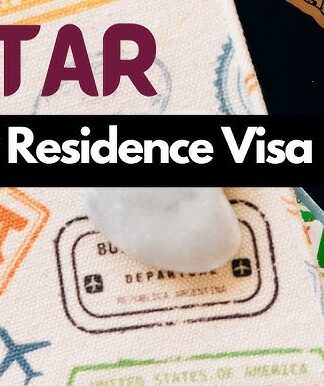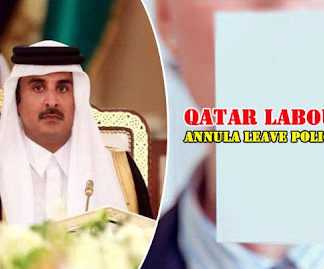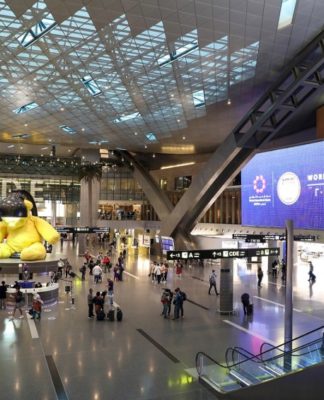Welcome to the Qatar Labor Law website! Here you can find information regarding the Qatar Labor Law both in the private sector and public sector as promulgated by the Ministry of Labour & Social Affairs.
Sources for the content came from and were passed by the National Assembly. Before being sent to His Highness the Emir for endorsement, all proposed laws require approval from the Qatar Cabinet. If a law becomes effective it will then be published in the Qatar Gazette. We will keep our pages current to reflect any new advancement to the Qatar Labor Law.
This website aims to provide its readers with all of the necessary information to maintain a harmonious working environment in Qatar. Its goal is to inform both citizens and expats about their rights and privileges as employees as well as to provide a comprehensive resource for companies that need to hire labor in Qatar. It also includes the procedure for hiring legal, competent employees for the private sector knowing that the Qatar Labor Law will be an advantage to employees as well as employers. A better understanding of the Qatar Labor Law will help employers and employees alike to enjoy a smoother and more mutually beneficial relationship.
The Qatar Labor Law website also contains articles about the definition and functions of the private sector, resources for researching the Qatar Labor Law and its effect on the Qatar economy and migrant rights, and the latest full version of the Qatar Labor Law including each of its amending texts.
The employment relationship in Qatar is principally governed by the provisions of Law No. 14 of 2004 Regulating Employment, adopted 19 May 2004, which includes the following amending texts:
- Minister of Civil Service Affairs and Housing Decree No. 11/2005 regarding occupations that are exempted from provisions regulating limited working hours. Adopted 22 August 2005.
- Law No. 3 of 2014 amending some provisions concerning fees and expanding the definition of entities who are excluded from the cover of the Labor Law. Adopted 4 February 2014. Published in the Official Gazette on 16 February 2014.
- Law No. 1 of 2015 clarifying compensation and the enforcement of due wages. Adopted 18 February 2015.
- Law No. 21 of 2015 detailing the regulations on the Entry, Exit, and Residency of Foreign Nationals. Adopted 27 October 2015.
Moreover, the following list encompasses texts and government decrees that have complemented the Labor Law:
- Decree No. 18/2005 governing the gathering of data about occupational injuries and illnesses.
- Minister of Civil Service Affairs and Housing Decree No. 19/2005, which obligates employers to conduct free and regular medical examinations of workers.
- Minister of Civil Service Affairs and Housing Decree No. 20/2005 regarding workplace safety and occupational hazards.
- Law No. 1 of 2014, which spells out regulations concerning nursery schools.
- Law No. 5 of 2014 about the National Service (which pertains only to Qatari nationals.)
- Ministerial Order No. 18 of 2014, which sets the conditions for adequate housing for workers in Qatar.
About Qatar
The State of Qatar, as it is officially known, is one of six Gulf Cooperation Council (GCC) countries located in the Arabian Peninsula region of Southwestern Asia with a rapidly expanding population of more than two million people. Qatar was a British protectorate until gaining its independence in 1971 whereby it became an absolute monarchy governed under the rule of the Al Thani family. His Highness Sheikh Tamim Bin Hamad Al Thani is the eighth and current Emir of the State of Qatar. Doha is the largest city and capital of Qatar and Sunni Islam is the predominant religion. The currency of Qatar is the Riyal (QAR) and the official language is Arabic, although English is also widely spoken as it often forms a common denominator language among the Qataris and the large expatriate population. Farsi, Urdu, Hindi, Malayalam, and Tagalog are also common due to the composition of the expat population. Arabic, the language of Islam, linguistically unites expat Muslims and citizen Muslims when English is less well understood.
History
Qatar has been inhabited for over 50,000 years, although its emergence as a distinct nation is a fairly recent development. It was a peripheral part of several empires, including the Seleucids, Parthians, and Sasanians, before being introduced to Islam in the seventh century C.E. Under the Abbasid caliphate, which peaked in the 13th century, Qatar became a prominent pearling center and saw the establishment of several new settlements.
In the coming centuries, Qatar would change hands several times, falling under brief Portuguese dominion in the 16th century before submitting to the rising Ottoman Empire in 1521. The Ottomans eventually lost interest in the area and the subsequent lack of military presence led to their expulsion by the Bani Khalid, an Arab tribal confederation that ruled much of the Persian Gulf.
Centered in what is today eastern Saudi Arabia, the Bani Khalid held sway over Qatar throughout most of the 17th and 18th centuries. As their hold began to weaken in the 1760s, rival factions like the Al-Khalifa family arrived from neighboring regions. After establishing the prosperous trading center of Zubarah, near the northern tip of the peninsula, the Al-Khalifa expanded outward and gained control of the nearby island of Bahrain in the 1790s, which they continue to rule today.
As the Al-Khalifa began shifting their focus to Bahrain, the rival Al-Thani, who remain Qatar’s ruling family today, consolidated their control of the Qatar peninsula throughout the 19th century. The Al-Khalifa continued to claim the area, and the two factions fought a war that culminated in an 1867 truce mediated by the British. The agreement recognized Mohammad bin Thani as the rightful representative of the Qatari people.
Some years later, Mohammad’s son, Qasim Al-Thani, accepted the title of governor from the Ottomans, who were trying to reestablish authority in the region after centuries of neglect. Following a political dispute with his ostensible overlords, Qasim Al-Thani led a revolt in 1893 gaining Qatar further autonomy within the Ottoman Empire and paving the way for the development of a sovereign nation.
During the First World War, Qatar took part in the Arab revolt against Ottoman rule, securing its independence. In 1916, Abdullah bin Qasim Al-Thani, Qasim’s son and successor, entered an agreement with the U.K. that effectively established the Al-Thani as the ruling family of Qatar. The British would protect the nation from both internal and external threats, allow for special rights for British subjects operating in the territory, and ensured that the U.K. would have a say in Qatar’s foreign relations. While this arrangement meant that the British exercised de facto power over the country, it also signified yet another big step towards complete sovereignty.
Al-Thani’s position was further strengthened by the discovery of oil reserves in 1939. Following the end of the Second World War, British power in the region began to wane, while increased oil revenue allowed Qatar to expand and modernize its economy. By the 1950s, this newfound wealth, combined with ever-diminishing British influence, allowed Qatar and its neighbors to pressure the U.K. to withdraw from the region. In 1968, the British officially announced that they would fully depart from the Persian Gulf in three years, leaving it up to the inhabitants to determine their post-independent future.
Upon this declaration, Qatar considered joining a federation with Bahrain and the seven Trucial States which make up present-day United Arab Emirates. Unable to agree on the terms of the federation, Qatar opted to go its own way and adopt a constitution declaring its independence in 1971, which the U.K. recognized. After nearly 200 years of gradually gaining autonomy, Qatar was now a fully sovereign, self-governed state.
Forming the basis of Qatari nationhood and civic identity, the Constitution of Qatar states that the ruler will always be chosen from the Al-Thani family with assistance by a council of ministers and a consultative council. The consultative council was never elected; instead, there is an advisory council appointed by the ruler. Amid occasional protests and even sporadic infighting within the ruling family, the Al-Thani have retained solid control of the country, amassing considerable wealth and influence both domestically and internationally.
Qatar’s demographics are a reflection of this turbulent history, which has entailed centuries of migration, foreign rule, and international commerce. The native people of Qatar roughly span three distinctive ethnic and culture groups.
First are the Bedouin, desert nomads and traders who number around 37,000. Many continue their traditional way of life. Then there are Hadar, who trace their ancestry to Iran, Pakistan, and Afghanistan; they are the legacy of centuries of Persian rule, migration, and trade in Qatar. Finally, there are the Abd, whose name roughly translates to slave in English. They trace their ancestry to the African slaves who were brought to the country over the last several centuries.
Despite these differences, Qataris form a cohesive nationality with little instability or infighting. Today all three groups are recognized as equal citizens who form one nation.
Economy
Like many other GCC countries, oil and natural gas reserves form the foundation of Qatar’s economy accounting for 50 percent of its billion GDP, 85 percent of its billion export earnings, and 70 percent of the government’s total revenue of billion. Revenue from petroleum has made Qatar the beneficiary of a per capita GDP that is the highest in the world at and has also made it the richest Muslim country. Dependence upon petroleum as a primary source of revenue has left Qatar exposed to market factors affecting its price, though proven oil reserves of over 25 billion barrels should support continued production for at least another 50 years. Its proven natural gas reserves in excess of 25 trillion cubic meters put Qatar behind only Russia and Iran and represent 13 percent of the world total. The recent increase in production of Liquefied Natural Gas has helped to establish Qatar as one of the fastest growing economies in the world.
The government considers industry to be an integral part of its plan to diversify the economy while continuing to maximize its huge natural gas reserves and thus it works to develop increased private and foreign direct investment into non-energy sectors of the economy. A heavy reliance on foreign labor is a contributing factor to the success that Qatar has experienced and there have been claims that up to 95% of all of the labor performed in the country is done by migrant workers. The abundance of oil combined with the low price of readily-available foreign labor are some of the most important contributing factors that have facilitated the economic prominence Qatar enjoys today. Large scale construction projects designed to improve the infrastructure as a result of a successful World Cup bid for 2022 include the new Hamad International Airport, the new Doha Metro system, the new Lusail Light Rail Transit system, and a new port as well as roads, stadiums, and other related sporting and hospitality projects.
Government
Qatar is one of only a few countries remaining in the world – including Brunei, Oman, and the United Arab Emirates, among others – still governed by an absolute monarchy. The ruling Al Thani family has been in power since 1825 and maintains solid control of the country. Members of the family are distributed among the highest ranking positions in government, making the Al Thani family a political dynasty at the center of politics in the country.
As a result, the general population has little participation in government; there is no independent legislature, political parties are banned, and most information about public policy (such as the national budget, public expenditures, etc.) is kept private. However, there have been some moves towards reform, including plans for legislative elections to take place in 2016.
Qatar’s constitution mandates Sharia law as the basis of legislation and public policy. Sharia is a legal system rooted in the teachings and principles of Islamic texts, including the Quran. It places firm guidelines on behaviors and beliefs, with a focus on social interactions, attire, religious practices, sexual mores, hygiene, and leisure activities. Both Qatari nationals and expats are expected to adhere to these standards.
Sharia law as practiced in Qatar entails a strict imposition of the death penalty, including several forms of corporal punishment such as amputation and stoning. The law highly prioritizes men, particularly in matters of inheritance and family law, and women are accordingly less well represented in legal scenarios than their male counterparts.
Subsequently, certain contents of the law are viewed internationally as a violation of human rights. According to the 2011 International Human Rights Rank Indicator (IHRRI), Qatar has a human rights rating of 47.80 percent; the highest rating for any Muslim country was the United Arab Emirates at 53 percent. Countries with Sharia-based legal systems tend to be among the worst performing in the index; for comparison, the highest rated country overall, Sweden, has a human rights rating of 89.13 percent.
The Qatari government enforces strict crime control through their strong police force ensuring a high degree of law and order. Consequently, the 2014 Crime and Safety Report found that the country’s national murder rate is 0.5 out of 100,000 people; compared to the worldwide average of 4.0 for every 100,000 people, Qatar’s murder rate is comfortably low.
Terrorism is an evident concern, although there has been no terrorist attack since 2005 and the government invests heavily in counter-terrorism efforts. Theft, harassment, and various forms of fraud are the most common issues facing expats. Violations of bans against alcohol, drugs, and smoking are also rampant. Legal transgressions and their corresponding punishments are not only applicable to Qatari nationals, but also to expatriates and tourists.
Business Environment
Prior to the 1950’s, Qatar’s economy was centered on traditional enterprises such as fishing and pearling. The late 18th century marked an increase in migration to Qatar by neighboring tribes, allowing Qatar to grow as a regional center of trade; however, growing conflict in the region soon restricted business ties to a predominately local level. Although later Ottoman and subsequent British rule allowed for an expanded market, the business environment remained underdeveloped and unchanged.
With the discovery of oil – and the subsequent investment of the windfall revenue in modernization efforts – Qatar quickly developed a booming financial sector oriented towards the global market. As one of the richest countries in the world, Qatar offers significant investment capital, attracting investors from all over the world. Its sovereign wealth fund, the Qatar Investment Authority, is one of the biggest in the world with assets valued at billion as of 2013. With a focus on foreign investment, it has holdings in numerous major companies around the world including Siemens, Barclays, Volkswagen Group, Bank of America, and Royal Dutch Shell.
The well developed capital market has led to the growth of a cosmopolitan expat community which represents a multitude of investment portfolios and major financial interest. Combined with its fairly centralized geographic location, Qatar has become an ideal hub for international networking and commerce. Qatar Airways, the state-owned flagship airline, is a quintessential representation of the country’s increasingly globalized infrastructure. Averaging 30 percent annual growth in its route expansion, the two-time winner of Skytax’s Airline of the Year continues to connect the country to investors, businesspersons, and tourists from around the world.
In recent years, the government has opened up more to foreign individuals and investors looking to spend their money domestically. This concerted effort to develop a more diversified and dynamic economy has earned the country a respectable 50th place in the World Bank’s 2015 Ease of Doing Business Index. This is fairly high for a country with an emerging market economy and it puts Qatar above the likes of more established industrialized economies such as Italy and Luxembourg. Dealing with taxes and construction permits were particularly strong points.
Qatar’s wealth boom is also leading to a growing consumer market, with the fast-growing upper class developing a taste for expensive consumer goods and luxury brands, particularly from the West. Trade with the West is subsequently booming, with growing imports from the U.S., U.K., France, and Italy reflecting the desire for name-brand goods. The country’s efforts to develop its retail sector is best exemplified by the construction of the billion Mall of Qatar, which aims to be the country’s leading shopping, dining, and entertainment center when it opens in 2016.
Government and economic policies continue to get friendlier, with the Index of Economic Freedom ranking the country 34 out of 177 in the degree of freedom it offers to individuals and businesses. This places Qatar among only 30 countries to obtain the “mostly free” label and puts it ahead of many Western European countries.
Access to Suitable Local and Expat Talent
Local talent is not readily available unless the employer conducts an extensive hiring and recruitment search as guided by the Labour Ministry. For urgent projects, business owners generally use foreign workers who are easier to find and less expensive to compensate. Finding migrant workers is an easy process for Qatari nationals because they have an entire industry dedicated to the immigration of foreign labor.
Indeed, expatriates are so abundant in the country that they make up 86 percent of the total population and up to 95 percent of the labor force. Workers come from all over the world and occupy positions at all levels from domestic and construction work to finance and management. The majority of the foreign labor force comes from South Asia and the Arab world.
Aside from the dominant energy sector, other fields with high demand for migrant labor include construction, technology, and services. The nature of the work performed by and compensation extended to any given expat generally depends on their nationality. Most companies prefer Western workers who are often better educated and more talented. Unskilled workers from poorer countries are usually relegated to menial and manual labor and paid less than their counterparts from wealthier nations.
Moreover, minimum wages are largely based on the agreements made between the home government and its embassy in Qatar. Work classifications and their corresponding rates are often established by country of origin; for example, Nepal, which has over 340,000 workers present in Qatar, classifies its laborers into four types: Unskilled, Semi-Skilled, Skilled, and Professional. The rates for these categories are 900 QAR, 1,100 QAR, 1500 QAR and 4,200 QAR respectively combined with accommodation and allowances.
Etiquette
Qataris place a big emphasis on social behavior, especially in public settings. Throughout the country, etiquette and respect are taken seriously in all situations. A Qatari man might shake hands upon first meeting, but is not always expected to do so. On the other hand, if meeting a Qatari woman it is unlikely that there will be any physical contact at all.
Men and women will not avoid one another but will instead choose to congregate in different locations away from members of the opposite sex. However, this socially conditioned segregation does not detract from the kindness and hospitality of the Qatari people. Strangers are always welcome in Qatari homes, and are expected to leave with a full stomach if not something extra for the road. Being hospitable and respecting others’ privacy are just some of the many values regarded by Qataris.
Many behaviors widely accepted in the West, such as alcohol consumption and freedom of expression in matters of faith or attire, are frowned upon, if not banned altogether, in Qatar. Only certain foreign hotels can serve alcoholic drinks to non-Muslim adult customers with Muslims prohibited from consuming it in any setting. Public dress codes are upheld and both men and women are expected to dress respectfully and in accordance with local traditions lest they face legal repercussions.
The general rule regarding attire is strict modesty. Qatari women traditionally wear the abaya, a simple and loose over-garment that covers all but the feet, face, and hands. It is often worn with a niqab, a special cloth that covers the entire face excluding only the eyes. Another commonly worn item is the hijab, a square cloth that is used to cover the head and neck. It is common to see some if not all of these articles worn by women.
While expatriate women are not expected to wear traditional clothing, they should nevertheless ensure that the clothing is appropriate in accordance with Islamic and local custom; revealing attire is strictly forbidden for women of any nationality. Women should cover their shoulders, upper arms, and most especially their knees.
The traditional clothing for men is the thawb (or thobe), an ankle-length garment, usually with long sleeves, that is akin to a robe. It is often worn together with the ghutra, also known as a keffiyeh, a headdress typically fashioned from a square scarf. Nowadays such attire is becoming relatively rare, with most men opting to wear simple trousers and shirts. Although technically allowed, expat men are advised not to wear short trousers and sleeveless tops in public. Expats are welcome to wear the national dress, however, provided that they do so properly and with respect.
Marriage & Family
Qatar does not restrict marriage to Muslims. Couples believing in other religions are allowed to marry as long as the union is between a man and a woman; homosexuality is considered haram, or forbidden, in Islam and is illegal in Qatar as a result. A political committee is necessary to act upon the marriage if the couple is composed of different religions, but if both members are Muslim then the deliberation is not necessary.
All of the weddings between Muslims are governed by Sharia Law and must be approved by a Sharia court. Marriages are typically arranged well before the couple is able to marry. Getting married is common among young people throughout the country and this is often because it is illegal for an unmarried couple to live together.
For expatriates, the process of marriage is straightforward. Requirements for marriage between expatriates may vary based on their citizenship so the first step of the process should be for each member to visit their corresponding embassy. The local embassy generally provides necessary information to complete the process accordingly. The paperwork requested typically includes birth certificates, passports, and any document relating to previous marriage. This process will be concluded upon the provision of the Certificate of Eligibility to Marry.
Aside from legal paperwork, medical tests are also required to ensure that the couple is genetically compatible. This is mandated by the Qatari government to identify any risks that a couple may face as they start to build their own family.
Kinship is deeply valued in Qatari society. Families tend to be close-knit and large, with many extended relatives and multiple generations often living under the same roof. Children maintain strong bonds with their parents well into adulthood. Spending time with the family is very important for Qatari citizens, with families gathering together for many different events and occasions. Family life is generally positive in nature and the divorce rates are lower than those of many Western countries.
Societal Roles
Qatari society is quite conservative when it comes to gender relations and segregation between the sexes permeates all sectors of society. Beginning at a young age, boys and girls are separated in school. Upon completing their education, men and women alike have an opportunity to work in both the public and private sectors. Women typically occupy lower-level positions than men such as clerical or secretarial work. In contrast, men are accorded more opportunities for higher paying professions and upper management and thus nearly always earn more than women.
Gender segregation is also visible in the public sphere. Qatari men have a greater presence in social settings, with women usually remaining at home to take care of children. These standards even filter through the expat community – men are expected to take on a heavier workload while women are entrusted to handle cleaning, childcare, and other household related jobs.
All women are expected to dress modestly in daily life whether they are nationals or foreigners. It is highly recommended that expats and tourists wear long sleeves and other attire to cover as much skin as possible.
Gender segregation places a lot of pressure on women, as they are expected to remain separate from large segments of society, even while they enjoy historically greater access to education and employment. Women are restricted to specific types of jobs, education, and social groups in stark contrast to most Western nations.
Nevertheless, despite these various constraints, women are acknowledged their basic rights and freedoms and, relative to other Islamic societies, Qatari norms are relatively liberal. For example, contrary to popular belief, women are allowed to leave their homes and drive cars without male companions, unlike in neighboring Saudi Arabia. They are also allowed to vote and run for public office (however restricted those avenues are in general.)
Higher Education
Although it traditionally placed little value on formal education, Qatar has rapidly implemented reforms to establish world-class educational opportunities at all levels. Free and accessible education from kindergarten through high school has been provided since 1956. Curricula generally include both Islamic and modern studies. These efforts have led Qatar to have the highest literacy rate in the Arab world.
While many expatriate students find university education in Qatar to be expensive, Qatar nationals who qualify for international education are often covered through government aid and scholarships. This reflects the government’s commitment to producing highly competent and skilled students. According to the Qatari Education Ministry, the country hosts close to 340 international schools across all levels of education.
The University of Qatar was established in 1977 through the combined effort of various colleges from around the world. The available programs span a wide variety of subjects including Islam, Sharia law, fine arts, medicine, education, business, and social sciences.
In 1997, the government and its partners established Education City, a large cluster of research labs, academic facilities, and satellite campuses from around the world. Some of the most famous foreign university systems in the world are represented, including the Virginia Commonwealth University Qatar, which led the way by opening a campus in 1997, Texas A&M University in Qatar, which opened in 2003, and Carnegie Mellon University Qatar, which was established in 2004.
These branches offer the same courses and degrees as their home universities and are even accredited by the same bodies. English is the primary medium of instruction and the standards set are no different from those of the parent institution. Together with a multitude of other academies and institutions, these universities offer a cosmopolitan and diverse academic experience with nearly every field and specialty represented.
Religion
Islam is Qatar’s predominant religion with the majority of citizens – roughly 86% – adhering to the Sunni denomination, of which the conservative Wahhabi sect is the official faith. Shia Muslims represent the largest religious minority of over 100,000 people, according to a Pew Research Center report in 2009. Even counting the significant numbers of non-citizen expats, who make up the majority of the total population, Islam remains the majority religion.
Nearly all non-Muslims present in the country are of foreign origin; the rapid growth in immigration from around the world has introduced a multitude of faiths in what was otherwise an overwhelmingly Islamic society. Christianity and Hinduism are the largest non-Muslim religions at almost 14 percent each, followed by Buddhism, the atheistic, and smaller faiths.
Qatar is broadly tolerant of non-Islamic faiths and in contrast to some of its neighbors even allows non-Muslims to apply for citizenship. The Nationality Law, exhibiting its control over religion, states that religion must not be considered as a criterion for a person’s citizenship.
However, it is inadvisable to publicize your beliefs, especially if they are against the teachings of Islam. To maintain peace and order, as well as safeguard the traditional faith, Qatar prohibits missionary activity and religious proselytizing, which is the attempt to convert a person to change his or her religion or belief. Anyone caught engaging in this activity, including foreigners, can face up to seven years of imprisonment and/or deportation.
Ramadan in Qatar
Ramadan is the ninth month of the Islamic calendar, spanning 29 to 30 days, and falling at different times of the year depending on the lunar cycle. As it commemorates the first revelation of the Quran to the Prophet Muhammad, peace be upon him, it is the holiest period of the year and it is commemorated by Muslims across the world, including in Qatar.
Ramadan entails a wide variety of celebrations, rituals, and religious events including fasting, community prayers, increased prayers and religious studies, charitable giving, and more. Its arrival subsequently signifies big changes in social, business, and political life. While non-Muslims are neither required nor expected to participate in these observances, it is advisable – and in some cases even obligatory by law – to respect these traditions and behave properly in the presence of practitioners.
Qatar lawfully prohibits eating, drinking, smoking, and even the chewing of gum in public places during Ramadan. Violators will be issued warnings and can even incur fines. As a result of this policy, most restaurants and cafés opt to close during lunchtime while certain employers will forbid workers from eating and drinking in open areas or around Muslim colleagues. Alcohol is also banned from being sold anywhere, even within private hotels.
Legal and business policies aside, many Qatari Muslims do not generally mind if non-Muslims eat and drink in their presence, though it is polite and appreciated if you make the effort not to do so. Moreover, as Qataris are a generally devout people, it is best not to risk offending an especially pious believer.
As this is a time of extra introspection, humility, and piety on the part of Muslims, it will go a long way if you exercise proper etiquette and consideration by dressing modestly and avoid playing loud music in public. Greet Muslims you encounter with Ramadan Kareem, which wishes them a generous holiday, or Eid Mubarak at the end of Ramadan during Eid al-Fitr. It is recommended to drive especially carefully, particularly around sunset and after, as the roads get congested with adherents attending evening prayers and enjoying iftar.
Qatari law also enforces shorter workdays for all residents during Ramadan. Most businesses operate only six hours a day, while public sector institutions are opened only five hours, either from 8 am to 1 pm or 9 am to 2 pm, although some departments will reopen at night. Malls will usually open late at night and typically post or announce their new hours a few weeks before Ramadan. It is recommended that you check in advance with any bank, store, or state agency to see what their hours will be.
To be sure, there is more to Ramadan than fasting and prayer. It is a festive and community-centered occasion that gives plenty of opportunities to get to know the country and its people. For example, you may have the good fortune to be invited to an iftar dinner, at which point you should make the effort to attend and bring a small gift, preferably something sweet. Many restaurants and hotels host elaborate iftars that offer a chance to enjoy a delicious meal with members of the community.
Qatar also has many unique public events that are family-friendly and open to people of all beliefs. The Katara Cultural Village hosts an annual Ramadan Festival that includes exhibitions, workshops, lectures, and more – an excellent option for those wishing to be deeply engaged with the local culture. Aspire Zone, the country’s leading sports center, hosts a Ramadan Sports Festival with numerous competitions in a variety of sports ranging from football to basketball.
There is also the interesting spectacle of the sunset cannon, located outside the Abdul Wahhab Mosque in the capital, which fires off every day at sunset to mark the breaking of the fast. It is popular among residents, especially children, and sometimes includes free water and snacks.
The fourteenth day of Ramadan marks Garangao, Qatar’s closest answer to Halloween. Celebrated across the Personal Gulf, it involves kids dressing up in traditional attire and going door to door to receive candy, often while singing a special religious song.
Automobile enthusiasts will enjoy the Corniche car parade where young Qatari men gather everyday before sunset to showcase their prized cars. You’ll find everything from sleek Lamborghinis and Maseratis to rare vintage models.
Whatever you opt to do during the month of Ramadan, there will most certainly be plenty of interesting adjustments, cultural excursions, and discoveries to make.
Food
Qatari cuisine is reflective of the country’s cosmopolitan history, combining traditional Arabic dishes with Indian and North African influences. Each region offers its own unique perspective on both local and non-local foods; between the regional variety and heavy multicultural presence you can expect to find a vast selection of food anywhere you go.
Due to the coastal location, Qatari nationals have a strong affinity for seafood. Unsurprisingly, some of the most common foods associated with Qatar are indigenous to the region, such as almonds, dates, and sour apples. Somewhat similar to prunes, the much sweeter date fruit is a particularly popular staple, being grown in different regions of the country. Almonds and sour apples are also considered delicacies in various areas.
The traditional dish of Qatar is called machbous, and it can always be found at family feasts and special occasions. It is a large bowl of rice with meat, usually lamb but often poultry and seafood mixed with local spices. It is this flavorful herbal paste that really makes the dish unique and flavorful. For a better understanding of this meal you can consider machbous to be the Middle Eastern equivalent of the famous paella.
Arabic coffee is another staple you will find at almost every meal. It is usually served black or sweetened with herbs and sugar. Arabic coffee has a distinctive flavor owing to the unique beans and special process of roasting. Tea is another ubiquitous beverage that is usually brewed dark and served hot. It is often presented in both business meetings and social gatherings.
Impact of World Cup 2022
Qatar is the first Arab state to host the FIFA World Cup and this is a source of tremendous pride for the country. Scheduled for June and July 2022, the country was selected through the efforts of the bidding committee led by Sheikh Mohammed Bin Hamad bin Khalifa Al Thani. Qatar’s hosting of the game speaks volumes about its growing status as an influential middle power in world affairs.
Despite this success, the decision has been contentious from the start and controversies continue to mount. Indeed, the global reaction has been far more negative than positive. Whatever the merits of giving an Arab country a chance to make history, the country is simply not viewed as an ideal location for hosting the game. This is primarily because the temperature can exceed 50 degrees Celsius (120 degrees Fahrenheit) during the summer season when the World Cup has been traditionally scheduled. The country also lacks the necessary sporting infrastructure to support an event of this scale – in fact, Qatar doesn’t even have a soccer culture to speak of, which has only further fueled cynicism toward its hosting of the tournament.
There have also been serious allegations of bribery to certain members of the FIFA Committee. Representatives of Paraguay, Ivory Coast, Cameron, and Trinidad and Tobago allegedly requested certain amounts of money from the Qatar Bid Committee in exchange for their respective votes; all of the representatives from Qatar have naturally denied the accusations.
Another major controversy concerns the migrant labor involved in preparing the country for the World Cup. An army of workers is needed to build the necessary infrastructure, which includes several world-class stadiums, roads, and various soccer-related event facilities. Hailing mostly from India, Sri Lanka, Bangladesh, and Nepal, the laborers have allegedly been mistreated by the various companies contracted to work on these projects; allegations include lack of adequate training, squalid living quarters, dangerous working conditions, low compensation, withheld payment, and even forced labor – all in contravention of the labor contracts. The conditions of Nepalese workers in particular are reportedly akin to modern day slavery.
Buttressing these claims is the high death rate among workers involved in World Cup-related construction projects: an oft-cited figure is 1,200 fatalities, though some sources suggest the number could be higher. Some Qatari officials counter that the number of deaths, occurring mostly among Indians and Nepalese, is actually lower than it would be in their respective home countries. Indeed, even the Indian government has described the number of casualties as “quite normal” given the size of its migrant community in Qatar. These details will be expanded upon in the upcoming sections.
Nevertheless, there is much global outrage against the labor situation in Qatar and human rights groups are pressuring both the government and FIFA to make some changes. For its part, Qatar denies both accusations of bribery and the abuse of its labor force. Regardless, the government has promised that it will implement safeguards to protect workers from exploitation including the introduction of an electronic payment system, building modern accommodations, and holding companies to a higher standard of labor treatment.
Despite all of these issues, Qatar is expected to gain much from the 2022 World Cup, namely a significant boost to tourism. Millions of people from around the world will be compelled to visit the country and Qatar will be able to put its cultural and economic development on full display. Aside from the immediate gain in revenue and prestige, this event is anticipated to help catalyze a sustainable tourism industry to both the country in particular and the region as a whole, which has suffered a negative image owing to recent conflicts. Incidentally, this tourism boost will be in line with the aforementioned Qatar National Vision 2030 which, among other objectives, aimed to develop tourism as part of diversifying the economy.
Tourists will be expected to follow a special dress code that the government has outlined for the occasion. It will mostly conform to the current standards by which visitors and expats are expected to abide: tourists must ensure that their shoulders, down to their knees, are properly covered; women cannot wear short sleeves, shorts, or anything revealing their chest or legs; and men will be banned from wearing shorts, tank tops, or v-necks. Leggings will also be prohibited. The government is asking visitors to respect their local culture and laws by following all dress code guidelines; leaflets are being handed out detailing the regulations of the event.
Intro to the Qatar Labor Law
Qatar Legal System
Qatar employs a legal system wherein laws are implemented in two ways: 1) the Sharia court (or Islamic court), which factors in the Islamic sociocultural setting that results in the Sharia law and 2) the Adlia courts (or civil courts) that stem from Qatar’s independence and strives to meet the law requirements of non-Muslims who reside in Qatar. The Qatar Labor Law ratifies the minimum standard of rights and benefits for employees to which employers must adhere as well as the obligations of employees working in Qatar.
Some of the most common or widely inquired upon facets of the Qatar Labor Law include:
- Regulations and Contracts: Employer-employee relationships are regulated by the Qatar Labor Law which states that the Arabic language must be the language used in employment contracts (Labor Law No. 14, 2004); however, a secondary language may be used for the benefit of non-Arabic speakers with the understanding that the Arabic version is the only legally valid document.
- Working Days: The Qatar Labor Law states that one work week is equivalent to a maximum of six (6) business days, with a day not extending beyond eight (8) hours of work. The exception to this is during Ramadan wherein hours are shortened to six (6) hours per day.
- Contract Terms: Employment contracts can range from a limited period to an indefinite one with a maximum term duration of no more than five (5) years. If any stipulations arise that are proven to go against the Qatar Labor Law then these shall be considered void unless said stipulations are for the benefit of the employee.
- Unions and Committees: The formation of worker’s committees in various organizations is deemed permissible by the Qatar Labor Law provided that no less than one hundred (100) Qatari workers are part of such an organization.
- End of Service Gratuity: See below.
Employment in Qatar
The rules governing employment in Qatar, including the rights, obligations, and relations between workers and employers, fall mostly under the purview of Labor Law No. 14 of the year 2004. Also relevant is Law No. 4 of the year 2009 “Regarding Regulation of the Expatriates Entry, Departure, Residence, and Sponsorship,” which became official on 29 April 2009. Often simply called the “Sponsorship Law,” it details the protocol for lawful entry, residence, and sponsorship in the country and aims to guide employers highly dependent on the country’s mostly foreign labor force. Law No. 21 of 2015, ratified 27 October 2015, will replace Law No. 4 of 2009 once it comes into force on 14 December 2016, one year after it was published in the official gazette.
An Overview of Labor Law No. 14 of the year 2004
Article 2 of the law outlines those sectors or industries which are exempted from its provisions. These include the following:
- Those employed in the public sector, by companies established in whole or in part by Qatar Petroleum, and employed in specially regulated industries.
- Those working as domestic help such as drivers, caregivers, maids, and cooks.
- Working dependents of the employer’s family such as wife and children.
- Workers in the agricultural industry who are not involved in processing, marketing, or the maintenance of agricultural equipment.
In essence, the bulk of activities undertaken by most private employers will fall under the guidelines of this law.
Minimum Standards
Article 4 of Labor Law No. 14 of the year 2004 stipulates inviolable protections and rights to workers in which employers must commit; business policies that contravene these rights will be voided even if they pre-date the application of the law. The minimum obligations include limits to working hours, maternity leave for female workers, advanced notice for termination of employment period, clearly specified wages, and other procedures intended to safeguard the mutual interests of both the worker and employer.
Employment Contracts
All contracts and relevant documents must be written in Arabic as specified in the Commercial Companies Law No. 5 (2002). While the employer may offer copies in other languages, it is the Arabic version that will take precedence in the event of any dispute. Article 38 of Labor Law No. 14 of the year 2004 mandates that the contract must be written and should consist of three copies: one for each party and the third for the Labour Ministry. The contract must specify the terms of the labor relationship between its two parties and all of the relevant details including:
- The name and place of work of the employer.
- Worker identification including qualifications, nationality, profession, and residence.
- The period of the contract including the exact date of commencement and date of conclusion.
- The nature of work, type of work, and the place of contracting.
- The agreed wage, payment method, and the date of recurring payment.
Moreover, in the event that the contract is not provided in writing, the worker can nonetheless prove their labor relationship with the employer – and thus all the subsequent rights – by any other means of proof.
Article 39 of Labor Law No. 14 of 2004 states that a worker may be contractually obligated to a mutually agreed upon probation period of no more than six months; however, no worker can be subjected to more than one probation period by the same employer.
If during the probation period it has been proven that the worker is unable, for any reason, to carry out the work stipulated, then the employer may terminate the contract provided that the worker has been notified at least three days from the date of termination.
The Labor Law makes it clear that written documentation and paperwork is made available for every activity including hiring and training, dealing out penalties, and terminating the contract. Nearly all of this obligation is the responsibility of the employer.
Employee Protection
The following are some of the aforementioned minimum standards in which employers are committed according to Article 4 of Labor Law No. 14 of the year 2004.
Minimum Wage: While there is no minimum wage in Qatar, the law makes clear that employers must clearly delineate compensation in the contract and adhere to that. Qatar also maintains agreements with certain countries to protect the interest of low-paid employees.
Worker Safety: Employees must only carry out the work specified in the contract and may opt out of any work-related activities that can reasonably put him or her at risk. Employees also have the right to terminate contracts in writing for any reason.
Working Hours/Weekends: The work week is a maximum of 48 hours per week with a maximum of eight hours per day excluding lunch break; during Ramadan this is reduced to 36 hours per week and six hours per day with one interval or more ranging from one to three hours for prayer, rest, and meals. Workers shall not work more than five consecutive hours. Friday is the weekly rest day for all laborers except shift workers; those required to work are entitled to a day off as compensated time and an additional 50 percent of the basic wage. During the especially hot summer days, the Labour Ministry may prohibit outside work altogether or require the adjustment of working hours into the night.
Employment Opportunity for Accompanying Spouses
Qatar allows the spouses of sponsored laborers to work in the country without the need of a separate work permit; this is known as “family sponsorship” since the sponsor is essentially extending their sponsorship to the legal partner of their employee. However, the spouse’s employer must receive permission from the Ministry of Civil Service Affairs and Housing. Afterward, the spouse must visit the Labour Ministry and present the following items:
- A copy of the employment contract
- Original passports and identification with copies for both the applicant and their spouse
- At least two photographs of the applicant
- A letter from spouse’s sponsor confirming permission to work
- If applicable, any original certificates, licenses, certifications, and other relevant qualifications with copies
The spouse’s employer will also issue a labor card that must be renewed annually. Moreover, any working spouse will be required to request an annual police background check or other official proof of their lawfulness from their country of origin.
Note that this arrangement has its caveats: spouses of sponsored workers are conferred a different legal status and thus may not be entitled to all of the benefits, allowances, and other job perks granted to sponsored employees.
At the same time, working spouses are not as strictly governed and, for example, are able to leave the country without needing to apply for an exit permit from their employer. This could be vital in the event of an emergency back home. Weigh these options carefully.
Kafala and the Qatar Labor Law
What is the Kafala System?
The Kafala system was put in place to monitor migrant laborers situated in various Arab states. It imposes a prerequisite of having citizen sponsors, known locally as kafeel, who will assume responsibility for the legal status and visa requirements of migrant laborers prior to working in Arab states. Some of the tenets of the Kafala system include:
- Seeking permission from sponsors should migrant employees wish to:
- change jobs
- depart from the country
- rent housing
- obtain a driver’s license
- open checking accounts
- Confiscation of foreign workers’ passports for the entire term of contract
- Transfer of sponsorship from current sponsor/kafeel to a new one without the need for notifying the worker beforehand.
- Repatriation of foreign workers without notice
- Banning foreign workers from reentering the country
Issues Surrounding the Kafala System
The Kafala system has its share of critics because some of its tenets have the propensity for worker exploitation and abuse with little chance of legal repercussions against the sponsors on behalf of injured employees. Some of the circumstances that emerged due to the imposition of the Kafala system include:
- A migrant worker becoming undocumented after escaping from an abusive employer and thereby being charged by the kafeel
- Forced acceptance of unjust working conditions and treatment by migrant workers in exchange for being able to continue to work in Qatar
- Signing false statements that indicated they received wages in exchange for having their passports returned to them
- Inability of a migrant worker to be released from employment after term of service has been delivered due to refusal on the part of the employee/sponsor
Qatar’s Response
The controversies surrounding the treatment of migrant workers, including through the kafala system, has attracted widespread concern and condemnation from human rights organizations, labor rights groups, and other international institutions. The United Nations has even suggested that Qatar reform, if not remove, the kafala system. The U.N. General Assembly has requested that the country overhaul its labor laws.
Recent investigations by Amnesty International and Human Rights Watch to evaluate the working conditions of migrant workers employed for the World Cup infrastructure projects have revealed overcrowded living quarters, lack of potable water in worker accommodations, underpayment or nonpayment of wages, employers disregarding work health risks, passport confiscation, and violations of the Labor Law.
Qatar has assigned a Supreme Committee for Delivery & Legacy (SC) committed to ensuring the welfare of all workers involved with SC projects. However, despite numerous complaints and reports from outside investigation groups, the SC claims that their monitoring and internal inspections have proven successful.
The undesirable living and working conditions made deaths inevitable. Despite the finding and subsequent promises by authorities to improve the situation, fatalities continue to rise. According to the DLA Piper report, 964 migrant workers, mostly from India, Bangladesh, and Nepal, died between 2012 and 2013.
Following the massive Gorkha earthquake that struck Nepal in April 2015 and killed thousands of people, a large number of Nepalese workers were not allowed to go home to see their families and attend funerals. Employers had prioritized the World Cup projects over the needs of workers, which further tainted Qatar’s hosting of the event.
This and other incidents led to renewed attention and criticism towards the kafala system. Dr. Abdullah Sale Mubarak Al-Khulaifi, the previous head of the Qatari Ministry of Labour and Social Affairs, responded to these concerns in May 2015, expressing certainty that in seven months time the kafala system would be radically changed if not replaced entirely.
Following increasing pressure from the international community, Qatar has publicly announced the planned reformation of the kafala system. It recognized that migrant workers need to have stable and reliable sources of income in Qatar and it recognized that kafala, as currently practiced, does not have any provisions for protecting these rights and safeguarding the needs of migrant workers and their families.
Labor Law Amendments
Recent Amendments to the Labor Law and Kafala System
Housing Decree No. 11 of 2005
Minister of Civil Service Affairs and Housing Decree No. 11 of year 2005 on Work Groups and Jobs Exempted from the Provisions Related to Limited Working Hours, adopted 22 August 2015, addresses hours of work, weekly rest, and paid leave.
Law No. 3 of 2014
Law No. 3 of 2014 was promulgated on 4 February 2014 to amend specific stipulations of Labor Law No. 14 of 2004; hence it is often referred to colloquially as the “Amending Law.” In particular, the law expands ministerial fee imposition as laid out in Article 37, while Article 3 (1) was amended to widen the definition of those exempt from the Labor Law. The amendments are as follows:
Exemptions of the Labor Law
Article 3 (1) of Law No. 14 of 2004 had set aside certain categories of employment to be exempted from the provisions therein; to recap, these include government institutions and ministries, enterprises by Qatar Petroleum or its partners, dependents of an employer, domestic help, and those working for sectors governed by a separate special set of laws.
The Amending Law expanded these exemptions to the following categories:
- Companies incorporated directly by the Qatari government, or through its involvement, which work in the petroleum sector in relation to the marketing and selling of petroleum products, chemicals, and petrochemicals.
- Companies which have been incorporated by Qatar Petroleum in whole or in part.
- Companies in which Qatar Petroleum owns a stake.
- Companies involved in exploration and production sharing agreements, field development agreements, and production sharing.
- Joint venture agreements in the petroleum sector and petrochemical industries.
In short, businesses with ties to the state-owned Qatar Petroleum company no longer fall under the purview of Labor Law No. 14 as of 2014.
Nevertheless, companies working and operating in the petroleum sector will still be subject to independent regulation in lieu of the Labor Law; otherwise, the Qatar Civil Code (Law No. 22 of 2004) will be applicable.
Ministerial Fees Expanded
Article 37 of Labor Law No. 14 of 2004 outlines several conditions and transactions which are subjectto government fees:
- The granting of the work permit and the renewal and replacement thereof.
- The granting of the license to recruit workers from abroad and renewal and replacement thereof.
- The attestation of the seals of companies and establishments, the service contract, the certificates and the other documents which are to be attested by the Ministry.
The fixing of these fees and the exemption there from shall be made by a resolution of the Council of Ministers.
Law No. 3 of 2014 expands fee imposition in Article 37 of Labor Law No. 14 of 2004 to include any person who undergoes a change of profession.
Law No. 1 of 2015 – Wage Protection System
In response to criticism of the Kafala System, Law No. 1 of 2015 was adopted 18 February 2015 in an attempt to better regulate and protect employee payments by amending, in particular, Article 66 of Labor Law No. 14 of 2004. The law orders that employers pay the salaries of their employees through direct bank transfers made from the employer’s local Qatari account, in Qatari currency, to a Qatari account in the name of the employee.
The new system intends to address previous problems of late or missing payments by requiring companies to register their employee’s details with the state’s banking regulator, Qatar Central Bank, and to pay employees at least once per month. Employers who violate the new amendment may be sentenced to a one-month prison sentence, a fine between QAR 2,000 and QAR 6,000, or both. Although the impact of its implementation remains to be seen, this may be the first of several steps fulfilling Qatar’s promise to enhance the rights and conditions of foreign workers.
Law No. 4 of the Year 2009 – The Sponsorship Law
As noted earlier, after Labor Law No. 14 of 2004, this is the most substantive piece of legislation pertaining to business operations in Qatar. It lays the groundwork for procuring the overwhelmingly foreign labor force on which Qatar-based enterprises rely. A quick rundown of what the law entails is as follows:
- Specifies on what conditions migrants may be allowed to enter and leave the country (Articles 2-8)
- Stipulates the prerequisites for legal residency of foreigners (Articles 9-17)
- Outlines regulations for sponsorship (Articles 18-36) and the conditions for those jobs not requiring sponsorship (Articles 37-42)
- Details penalties for violating the law (Articles 51-53) as well as the protocol for mediating these contradictions (Articles 54-56)
Key Aspects of the Law
The law spans every step concerning employment in Qatar from sponsorship and residence to temporary or permanent departure. As in Law No. 14 of 2004, much of the relevant work is to be undertaken by the employer and attested by the relevant government authority, which in this instance is the Ministry of Interior.
Sponsorship: Aside from tourists – who must have the applicable tourist visa– any foreigner wishing to enter or reside in Qatar, whose country of origin is not in the Gulf Cooperation Council (GCC), must have a travel visa and relevant documentation as well as a sponsor based in Qatar.
Exit Permit: Employees in Qatar cannot leave the country, even temporarily, without first obtaining an exit permit from their sponsoring employers. The only exceptions to this rule are dependents of sponsored workers or those whose visit will not exceed 30 days.
Confiscation of Passports: Under no circumstances can an employer hold a worker’s passport. However, since the law typically holds sponsors liable for the debts and obligations of their workers, some sponsors can retain the passports of their employees until these matters are resolved.
Employment Restrictions: Expats may only work for their sponsor and employers can subsequently restrict their sponsored employers from working for other parties in any capacity – paid or unpaid.
Post-Residency Restrictions: Even after an expat’s sponsorship is legally expired, the employer can restrict sponsorship by another party for up two years after departure. Only the Minister of Interior or his deputy can waive this restriction with written permission from the sponsor.
Law No. 21 of 2015 – Changes to the Sponsorship Law
Law No. 21 of 2015, ratified 27 October 2015, will repeal the previous Law No. 4 of 2009 Regarding Regulation of the Expatriates’ Entry, Departure, Residence and Sponsorship. The new law will allow easier exit procedures for expatriates leaving Qatar; however, the law will not come into force until 14 December 2016, one year after it was published in the official gazette.
Previously, expatriates were required to seek approval to leave Qatar directly from their sponsor. Under Article 7 of the new law, expats will seek approval directly from the Ministry of Interior. Requests must be submitted at least three business days in advance, as the MOI must wait for approval or objection from the employee’s sponsor. Should the sponsor decline the request to leave the country, the employee has the ability to petition a MOI-sanctioned committee to override the sponsor’s decision. A petitions committee will be assigned to handle any emergency related cases within three business days.
Article 8 of Law No. 21 of 2015 requires employers to return the passport or travel documents of their foreign employees once their issuing or renewing residence permit has been completed. The only exception is a written request by the employee for their employer to hold on to their documents; however, if the expatriate should request the documents at any time then the employer must return them immediately.
Article 14 gives an expatriate the ability to stay outside of Qatar for a period of six months without losing their residency. Employees who have been given a re-entry permit from an authorized power prior to departure, or those who have filed for one prior to one year since departure (and within sixty days of the residence permit’s expiry), are exempt.
Under Law No. 4 of 2009, expatriates needed approval from their sponsor to seek new employment. If the sponsor had not signed a “no-objection certificate” the employee would be forced to leave Qatar for two years before searching for new employment within the country. Articles 21-23 of Law No. 21 of 2015 grant employees who have completed their fixed-term contracts the ability to change jobs without approval from their previous employer or the need to leave the country. Furthermore, an expat can change their job before their contract ends should they be granted permission from their sponsor, the Ministry of Interior, and the Ministry of Labour and Social Affairs. Employees who are employed with open-ended contracts have the ability to seek this approval after they have been at their current job for five years.
Should the company cease to exist, or should the sponsor pass away, the employee has the ability to move to another sponsor after receiving permission from the MOI and MOLSA. Finally, if for any reason the employer and employee are involved in a suit between themselves, the Minister or his nominee may approve the transfer of employment of the expatriate on a temporary basis.
Article 26 of Law No. 21/2015, however, will put a four year ban on re-entering Qatar for employment on any worker who has been dismissed from work and has not challenged the dismissal from the competent court or who has had their challenge rejected.
It should also be noted that Law No. 4 strictly defines an expatriate as anyone who does not have Qatari citizenship. Thus, these provisions only apply to non-Qatari nationals entering and leaving the country rather than citizens departing or returning from abroad.
Work Permits and Visas
To employ non-Qatari nationals, an employer must secure related permits from the Ministry of Administrative Development Labor and Social Affairs. These are issued to foreign workers only under the following conditions:
- There is no qualified Qatari worker registered with the government who can perform the job.
- The candidate has a residence permit.
- The candidate is “reputable,” e.g. law-abiding and without a criminal record.
- The candidate passes a medical test.
Only after fulfilling these and other immigration procedures with the Ministry of Interior, such as the verification of personal documents and the taking of fingerprints, can expats obtain permits from the Labour Ministry.
Periodically the Ministry of Interior will restrict the issuance of work permits and residency visas for citizens of specific countries so this should be kept in mind when planning large scale hiring operations. The Ministry’s General Directorate of Border Passports and Expatriates Affairs offers a comprehensive online guide to the many types of Qatar visas available and their prerequisites.
End of Service Gratuity
According to Qatar Labor Law No. 14 of 2004, among the minimum obligations owed to workers is an end of service (EOS) benefit, which is a sum of money paid by employers to their employees upon the termination of the labor contract. Several articles are devoted to outlining the specific details and protocols of this stipulation.
Qualifications and Eligibility
As stated by Article 54 of Labor Law No. 14 of 2004, any employee who has worked for the same employer for the duration of one year or more is entitled to EOS in addition to any other payments owed on the termination of their employment.
Article 61 of Labor Law No. 14 of 2004 states that in the event that an employee’s contract is validly terminated for reasons of gross misconduct – such as fraud, disclosure of confidential information, unjustified absence for a straight week, etc. – the employee will not be entitled to EOS.
Moreover, Article 56 of Labor Law No. 14 of 2004 holds that employees who receive retirement benefits or comparable schemes that are of greater value than EOS are also not entitled to receive EOS. However, if said benefits plan is less than EOS upon termination of contract then the employee can request to be paid in EOS instead; any contributions paid into the scheme by the employee will be compensated by the employer.
Conversely, Article 51 of Labor Law No. 14 of 2004 states that employees who have validly terminated their contract without any notice owing to the employer’s gross misconduct (such as physical assault, dangerous working conditions, etc.) shall still be paid EOS plus any applicable payments activated upon termination.
Finally, if an employee who would have been eligible for EOS dies during his labor tenure in Qatar then the employer is mandated to pay EOS to previously specified descendants.
Exclusions to EOS
Recall that Article 3 of Labor Law No. 14 of 2004 exempts several classes of employment from its provisions including EOS. To recap, these include those employed in the public sector, including Qatar Petroleum, members of the armed forces, law enforcement, and maritime operations, those engaged in casual or domestic work, dependents of employers, those involved in the agricultural industry, and anyone whose line of work falls under special laws and regulations.
Determining Cost of EOS
Article 54 of Labor Law No. 14 of 2004 leaves it up to workers and their employers to agree upon the amount of EOS as long as it is at least equivalent to three weeks basic salary for each full year worked. Partial years are prorated; in other words, EOS is distributed in proportion to the amount of time worked.
While EOS is usually determined by taking into account all calendar days, certain industries or professions may utilize working days instead. In any case, valid leave such as sick, maternity, or annual leave is generally included while voluntary unpaid leave is not, although this varies from company to company.
With respect to those employed prior to the effective date of the Labor Law No. 14 of 2004, 6 January 2005, EOS for that period is typically calculated based on the preceding Labor Law, Law No. 3 of 1962. Under this arrangement, EOS tended to be more generous and there were also grounds for opting out based on several criteria; this is no longer the case with Labor Law No. 14 of 2004.
When is EOS Rendered?
Naturally, EOS is paid upon the valid termination of a contract. However, there are some alternatives depending on the employer. For example, some company policies allow for EOS to be paid out in installments throughout the year. Although this is allowed by the Labor Law, employers going this route must still nonetheless ensure that the full amount paid by the end of the contract complies with the law.
Additional Obligations
In addition to the End of Service Gratuity sum, the employer must also return the employee to any previously agreed upon location as documented in the original employment contract. The employer is required to complete these procedures within a 15 day grace period from the expiration of the contract. Should the worker join another employer before his departure from the country, the new employer adopts these obligations.
How to Find Expat Jobs in Qatar
Qatar offers many employment opportunities for expatriates and for many successful candidates the ways of looking for Qatar jobs include:
- Reliable, registered, and government-accredited agencies in their home country that have connections with various companies in Qatar
- Inquiring through government departments and sectors that handle overseas workers such as:
- the Philippine Overseas Employment Administration
- the Ministry of Overseas Indian Affairs
- the Ministry of Manpower and Emigration in Egypt
- the Department of Foreign Employment (DFE) in Nepal
- the Bureau of Emigration and Overseas Employment in Pakistan
- the Ministry of Expatriates’ Welfare and Overseas Employment in Bangladesh
- the Ministry of Manpower and Transmigration in Indonesia
- the Ministry of Labour and Professional Training in Tunisia
- the Ministry of Labour in Lebanon
- the Ministry of Labour and Social Affairs in Ethiopia
- Setting up an employee profile on large scale job websites such as LinkedIn for a chance to be recruited by headhunters in search of foreign workers to fill up positions in Qatar
- Submitting applications through various employment search avenues on the Internet. Here are but a few examples:
- Submitting applications directly through the Qatar based company’s website. Here are a few examples of companies in Qatar that regularly hire:
- Obtaining a Qatar Visit Visa to personally look for work for the duration of the Visit Visa
- Looking for referrals from family members or friends who are already working for a company in Qatar
Accepting a Job Offer in Qatar: What You Need to Know
Qatar employment rights and duties do not necessarily follow those of ones’ home country. Collected here are some essential tips you need to know that will make adjusting to the new workplace environment and culture much easier.
- Ensure complete understanding of your employment contract. Employment contracts are drawn up in bilingual form; thoroughly read the one you can understand (or can easily and completely be translated to you) and see to it that the following items are clearly stated in the contract:
- Employer name, place of work, and type of work
- Proof of identification including full name, exact qualifications, nationality, residence, and profession
- Term start and end dates of contract (contract period)
- Agreed salary rate, salary disbursement, and salary release schedule
- Your employer assumes responsibility for your visa expenses. Ensure this clause is present in the contract. You may also request for an additional clause allowing you to switch sponsors later if you wish, but know that this is not a guaranteed addition to the contract.
- Be aware of overtime rates and times. Under the Qatar Labor Law overtime cannot be more than ten (10) hours unless it is to prevent a dangerous accident, repair any consequences of previous actions, and the like. Compensation for this is greater than your basic wage by a minimum of twenty-five percent (25%).
- Entitled benefits. The following benefits are to be provided by an employer to an employee:
- Basic salary
- Accommodation or an allowance for it
- Annual round-trip ticket to employee’s home country
- Transportation allowance
- Standard leaves:
- Annual leave after one (1) year of continuous service: at least three (3) weeks if employee has been working for less than five (5) years, and at least four (4) weeks if employee has been working for more than five (5) years
- Paid sick leave of up to a maximum of two (2) weeks that can be availed after three (3) months into employment. Employee is required to submit a medical certificate following return to the work place.
- Other vacation days: three (3) for Eid Al Fitr and Eid Al Adha; one (1) for Independence Day; three (3) employer-specified leave days
- For Muslim employees a Hajj pilgrimage leave entitles them to no more than two weeks away from work but without pay and can only be availed once for the entire duration of employment.
- Fair treatment of both male and female employees. Gender equality is strictly enforced in the workplace in terms of work responsibilities and benefit entitlements. However, exceptions to this rule that affect women include:
- Maternity leave – good for fifty (50) days with full pay after one year of employment. This may include before and after delivery date provided that post-birth recuperation days are not less than thirty-five (35) working days
- Nursing period – One year after delivery, hour-long daytime breaks are allowed so that working mothers may nurse their children. This nursing period is part of the work hour computation and does not translate to wage deductions.
- Female employees should keep in mind that it is unlawful for their employment contract to end abruptly due to pregnancy or marriage. However, some employers (such as Qatar Airways, for example) were found in violation of this mandate.
- End of Service Gratuity. After a year of employment, workers are entitled to a wage benefit that equals three (3) weeks worth of wages on the last salary rate for each year of service. This benefit should be released to the employee within seven (7) days from his final working day.
- Health insurance. A provision for health insurance is not yet present in Qatar’s Labor Law; therefore, expect that many employers will not be providing this benefit to all employees whether foreign or local. This is because the Qatar government provides local residents – citizens and expats alike – with health insurance in conjunction with the Hamad Medical Corporation. However, reforms for a health inclusion for expatriates is in the works and should be available soon.
- Right to revoke sponsorship. Should an employee resign, be terminated, or come to the end of his or her contract, the employer has all rights to rescind sponsorship without protest. In addition, the Qatar Labor Law states that the expenses of returning the foreign worker to his home country falls in the hands of the employer. The employee, on the other hand, is expected to depart from the country within seven (7) days following the issuance of his or her exit permit. If the seven-day term is violated, the employer may report the foreign worker to the police or to the immigration authorities.
- Issuance of a Qatar Business Visa. Employers may issue business visas to prospective employees to gauge whether they should proceed with providing him or her with a permanent work visa. The business visa is good for one month with a two (2) month extension if necessary. Exiting the entry point is required to get a new visa for re-entering Qatar.
- Change of Sponsorship. If a foreign worker wishes to stay in Qatar and change employers then the current sponsor is required to submit a ‘No Objection Certificate’. This option is only for those who have stayed in Qatar for at least two years prior to requesting for a change in sponsorship. Once Law No. 21 of 2015 enters into force on 14 December 2016, employees who have completed their fixed-term contracts will be able to change jobs without approval from their previous employer. Additionally, employees will be able to change jobs before their fixed-term contracts end with consent from the appropriate authorities, employees who are employed with open-ended contracts have the ability to seek this approval after they have been at their current job for five years.
- Change of Sponsorship prior to stamping of residence permit. Foreign workers are allowed to change sponsorships before their residence permit is given a stamp. Legal stipulations include that a maximum of a three (3) month grace period is given from entry date to the country. In addition, the new sponsor will need approval from the respective authority concerning the worker’s recruitment who is of the same nationality as well as profession.



















